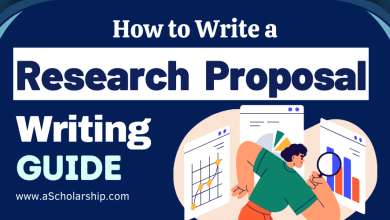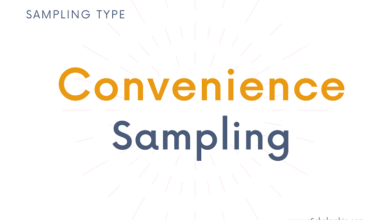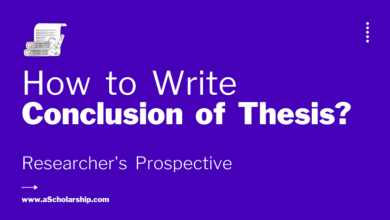6 Tips in Writing a Scientific Research Paper: Journal Paper Writing, Research Article Writing Ethics and Format
Writing a Journal Article - Read the journal you’re intending to submit to

A journal can be defined as a scientific reports journal, newspaper, or a magazine dedicated to a certain subject or profession. The writings that are published in these journals are called journal articles. Most of the journals publish papers after a volunteered peer-review process and one needs to make sure that their research is novel in order to convince the peer-reviewers.
How to find relevant journals for your research work?
Developing an understanding of the journal you are looking to get your article published in is a good step to start. You must read the scope of the journal’s areas where they accept the articles for publications. Reading the already published articles similar to the one you are working on helps in attaining an insight into the field of your work.
Further, it also assists the writer in making an effective case for or against something that has already been published on the subject in the journal. Moreover, it provides useful information about how much of your work is original. It can also help in deciding whether a subject has been researched well according to the scope of the journal or not. It is also important to make sure that the results of the research are novel enough to convince editorial board of the journals or not.
These useful observations gathered from reading the journal you are intending to submit your work to; helps in writing a more organized and persuasive journal article.
6 Tips to Write an Academic Research Paper for Peer-review Journals
Following are the 6 key points that I recommend, researchers, to focus on while writing an article for its publication into journals:
#1 Stick to the point
Any kind of communication that is all over the map is not very effective. It is very important for authors to make sure they talk about science and stick to the point with valid citations rather than beating the bush around. While writing a journal article, or anything for that matter, it is crucial to set a focal point for the article. And to properly understand that focal point as well to keep the article going in the same direction. It not only helps the article avoid going astray but it also makes it way more useful for the intended readership that largely consists of experts, researchers, and people who are closely linked to the field. Therefore, communicating your thoughts, results and discussion with valid citations and consistency is rather important when it comes to writing a journal article.
#2 Don’t be afraid to explain
Brevity is always appreciated; however, thorough explanations where they are required are fundamental to a good journal article as well. For instance, the research methodology and the approach that has been employed by the writer of the article may appear to be rather obvious to the writer but the readers may not find it such.
Therefore, the writer should take the appropriate time that is needed to properly introduce these things to the readership. Even though the readers predominantly are going to be the people who are somewhat already familiar with the subject, it is still important to explain the jargon and acronyms and other such things when they are being used in the journal article.
#3 Clarity is the key
Clarity is essential for all sorts of communication, whether written or otherwise. While writing a journal article it becomes all more important to be as much clear and precise as possible about the ideas, results, and material being communicated in the article. Using the language that is understandable to the majority of people is always a good thing. Informal language should be avoided as much as possible. However, when it is being used, suitable explanations should be provided along with it as well.
Furthermore, structuring the journal article also plays a crucial part when it comes to clarity. A good article should be properly structured so that the ideas are communicated to the readers in their logical sequence. The article structure should be given which is also known as an outline of research paper; due consideration to ensure there is no confusion and the ideas flow logically.
#4 Be aware of the other literature in your field (and reference it)
A literature review is one of the essential steps while writing a good article. Making references to the relevant data available in the field helps make a journal article more helpful to the readers. It is important to inform readers about how your article is linked with the other literature; that is already available on the subject.
Furthermore, demonstrating how your research article takes the previous pieces of work and develops it further; is another useful thing to do. It makes it easier for the readers to understand where your work fits within the collection of relevant previous material that exists on that specific topic. All in all, being aware of the relevant literature and making references wherever they are required is a good way to go about writing a journal article.
#5 Make your references current and relevant
While making use of the relevant literature in your journal article, it is important to fully comprehend its relevance and utility to your work and how it corresponds with the research article you are writing. As a rule of thumb, when making citations, it is always useful to mention the year as well as other important details about the source material briefly. Every journal has its own specific citation styles that can be adopted while formatting the references. The authors can take advantage of endnote or Mendeley citation Softwares to give proper journal-specific citation styling to the writings.
Furthermore, it is advisable to cite current developments and researches in the field rather than referencing older ones. Nonetheless, an older piece of work can sometimes be proved to be relevant and helpful as well that adds value to the article being written. In such instances, it is very important to cite the age of the work in citation format as well. For instance, a reference to a study carried out decades ago should not be dubbed as a “recent study”. It must be noted that; by using the latest work citations; your content can be considered up to date with latest research developments.
#6 Be original
References and citations are although a very important part of academic writing, however, your journal article is not supposed to be a compilation of all the material published before somewhere. The idea that the article deals with may not be new; however, the information and your views on the subject may be. In fact, the major part of the article is going to be what value you are adding to the pre-existent knowledge in that field. It is, therefore, absolutely crucial to draw appropriate attention to what you have got to say on the subject and how it is different from what has been published before.
Communicating your ideas effectively and making strong and convincing arguments is what is most likely going to make your article succeed. Backing it up with the relevant data and research and making appropriate references is the key but it should not dominate the originality of your work either. Therefore, finding the right balance is very important.





